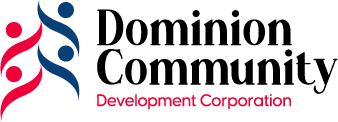Knowledge and student acquisition are the keys to any thriving community. Education and training programs become tools of change processes aiming at the necessary changes to individuals and empowering communities’ capabilities and skills to be added as unique values in specific neighborhoods. To this extent, believing in the capacity to learn or change, communities are positive frameworks that can solve systems’ problems and inequality and open innovative and practical opportunities for individuals. At Dominion Community Development Corporation (DCDC), we support community organizing to empower communities to become strong through education and training.
Bridging The Educational Gap
Underprivileged communities are often at a disadvantage due to disparities in educational resources, which prolong cycles of poverty and limited opportunity. Additionally, it is among the most challenging issues that many communities deal with. Programs for education and training play a vital role in closing this gap by giving people the resources they require to succeed.
Communities can make sure that each member has the opportunity to realize their full potential by providing accessible education. For instance, those who struggle in key courses can benefit from after-school tutoring programs. Adult literacy programs, on the other hand, can provide opportunities for individuals unable to finish their formal education. These programs enhance academic performance, boost self-esteem, and foster a passion for learning that lasts a lifetime.
Skill Development for Economic Empowerment
Formal education is not only about academic knowledge but also about providing knowledge not confined to four walls. That’s where economic empowerment comes in; when any individual walks out of a training program or workshop, it should be with the confidence to stand on their own in any vocational situation. With this kind of practical training, they should be able to safely and effectively carry out the tasks and duties anyone in a relevant business would be expected to perform.
A community-based workshop on skill development that teaches coding and web development can prepare young adults for careers in the tech industry. At the same time, culinary training programs can open doors to employment in the hospitality sector. We create a skilled and nimble workforce in our communities by aligning these two programs with market demands. The best thing is that these workforce development programs are inherently local. They reduce unemployment and create paths to economic growth. Local businesses benefit from a skilled workforce that is available at the right time.
Empowering Youth Through Mentorship
Youth mentorship programs are another powerful way to empower communities. Many young people face the challenges of peer pressure and a general lack of guidance when making many of life’s crucial decisions. However, mentorship programs give them access to experienced professionals who can offer advice, encouragement, and support.
Mentors are also vital in assisting the youth in developing life skills, including time management, goal setting, communication, and many other skills. They also take them to new possibilities, such as internships and scholarships that they would not have known about had they not been taken there by the mentors. By fostering these relationships, communities can help raise the next generation of leaders who will help improve their community.
Building Social Capital Through Community Engagement
It is not just the knowledge that education and training programs impart; they also foster a sense of community and growth. Collaboration. This Trust, social relationships, capital, and networks are invaluable to mutual support. It is built when classes, foundation neighbors, a financial collective, literacy action, and seminars learn resilience.
Parenting communities and workshops like these are shared places where people can learn from one another. These interactions help break down social barriers and promote inclusivity and a sense of belonging. When people become more engaged and invested in their community, they are more likely to participate in initiatives that drive positive change.
The Influence of Education and Training in The Long Run
Building and expanding local communities is possible using the acquired skill sets that result from education and training, which accomplish far more than just personal ambitions. Improving knowledge and developing skills gives humans the tools to start businesses, volunteer, and promote community activism, which is stronger than what can be achieved as an individual. The end goal that is achieved by community-based activism is the improvement in safety, health, and the overall environment for sustained collective growth.
Education and training tackle other important issues of poverty and excessive dependence, and society becomes more fair. This lays a firm foundation for any pacing community that has prioritized development and future growth in its agendas.
Conclusion
Supporting communities via education and training programs is commendable and essential for strengthening local communities and making them more resilient. In doing so, these programs can create opportunities for individuals to get capacity for their communities, the skills they need for improvement, and the equity they need to thrive. At Dominion Community DC, we are proud to contribute to this transformational process in partnership with communities nationwide. We can work together to build a world where everyone has equal opportunities to succeed.
Let’s encourage our communities to invest in education, leading to an empowered neighborhood.

